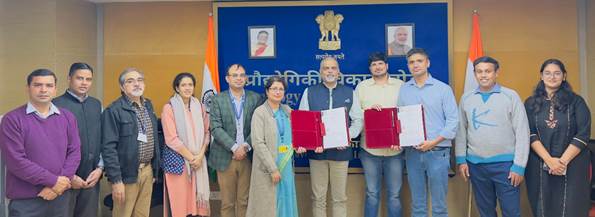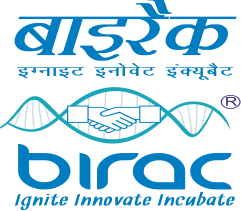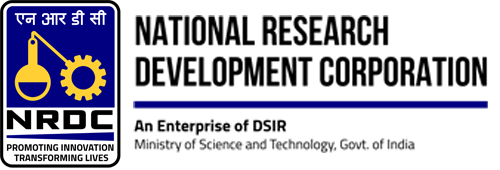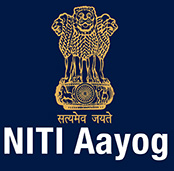Posted On: 17 DEC 2024 3:39PM by PIB Delhi
Space technologies drive advancements across industries such as telecommunications, navigation, climate monitoring, and defence. Recognizing this immense potential, the Indian government has opened the space sector to private players, introducing reforms to boost innovation, attract investments, and enhance global competitiveness. In a ground breaking step to further this vision, the Ministry of Science & Technology has announced its support for M/s Agnikul Cosmos Pvt. Ltd., Chennai, to develop and commercialize “Agnibaan,” a highly customizable two-stage launch vehicle capable of delivering payloads of upto 300 kg to orbits at 700 km altitude. This significant initiative is supported by the Technology Development Board (TDB), a statutory body under the Department of Science & Technology (DST).
TDB has sanctioned financial assistance for the “Development and Commercialization of Modular Configurable Launch Vehicle for 100 Kg Payload.” The project aims to make satellite launches more accessible, efficient, and affordable. Agnikul Cosmos, headquartered in Chennai and incubated at IIT-Madras, is a pioneering Indian space technology start-up with a vision to democratize access to space. Guided by 45 former ISRO scientists and supported by over 200 engineers, the company has achieved a historic milestone with the maiden launch of Agnibaan SOrTeD, the world’s first flight using a single-piece 3D-printed rocket engine. The centerpiece of Agnikul’s innovation, Agnibaan, is poised to revolutionize the satellite launch ecosystem by offering: Dedicated, scalable launches for payloads ranging from 30 to 300 kg.

Reduced lead times for satellite launches to just two weeks. Operational flexibility with mobile launch systems deployable globally. Customizable space missions for small satellites, eliminating inefficiencies of traditional rideshare models. The Agnibaan project incorporates several cutting-edge and indigenous technological advancements, including: India’s first single-piece 3D-printed rocket engine and other critical components.
Mobile launch platforms capable of enabling launches from any location globally. Development of all major subsystems, including engines, mission control systems, and launchpad infrastructure. Comprehensive testing facilities for quality assurance, rocket launch assembly, and subsystem evaluations. Sh. Rajesh Kumar Pathak, Secretary, TDB praised the Prime Minister, Shri Narendra Modi’s visionary leadership in opening up the space sector for private players, stating, “These visionary reforms have transformed India into a global hub for space innovation, fostering nearly 200 private space startups. Agnikul Cosmos, supported by TDB, embodies this success, showcasing India’s indigenous talent and the spirit of 'Atmanirbhar Bharat' while setting new benchmarks in space technology commercialization.
Mr. Srinath Ravichandran and Mr. Syed Peer Mohamed Shah Khadri, Founders, M/s Agnikul Cosmos said, “We started as a start-up at IIT Madras in a DST supported lab (NCCRD). Now, after having built some new technology, this financial assistance coming in through TDB is a strong sign of encouragement and support for all of us in the team to build world class space technology hardware from India.”







